#ff13-2 noel
Text
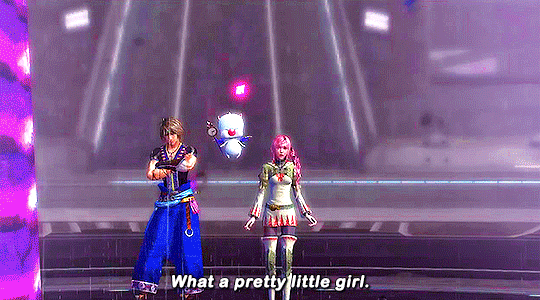

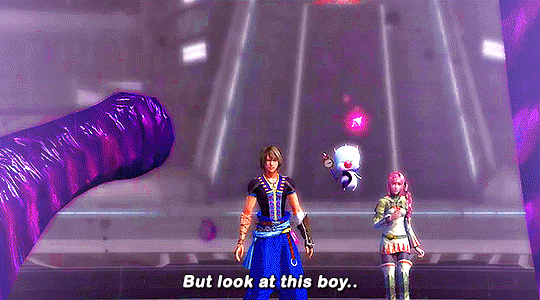

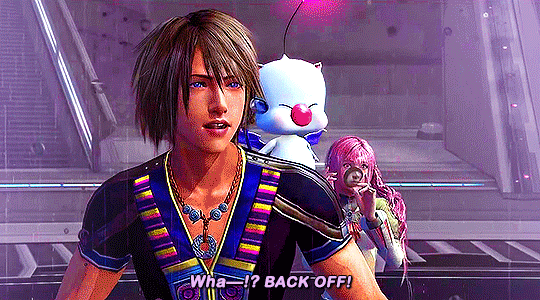
FINAL FANTASY XIII-2 (2011)
The funniest moments (11/?)
#noel kreiss#serah farron#FFXIII funniest moments#final fantasy xiii-2#ffxiii-2#final fantasy xiii#ffxiii#final fantasy 13#ff13#final fantasy#ffedits
429 notes
·
View notes
Text

STARTING OVER.
#ffxiii#ff13#ffxiii 2#ff13 2#final fantasy xiii#final fantasy 13#final fantasy 13 2#final fantasy xiii 2#serah#serah farron#noel#noel kreiss
161 notes
·
View notes
Text
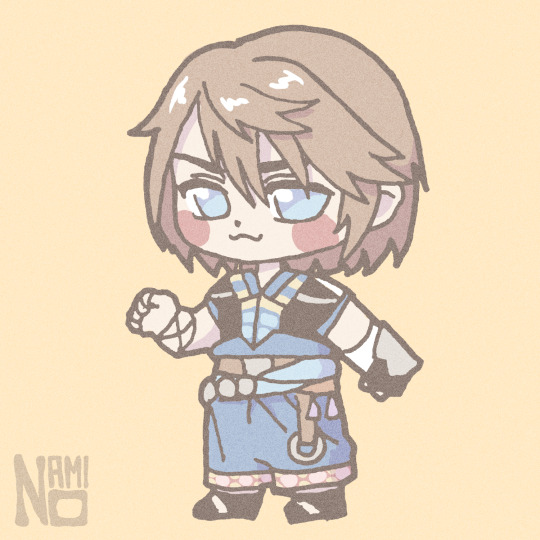
noel kreiss from final fantasy xiii-2 :]
21 notes
·
View notes
Text
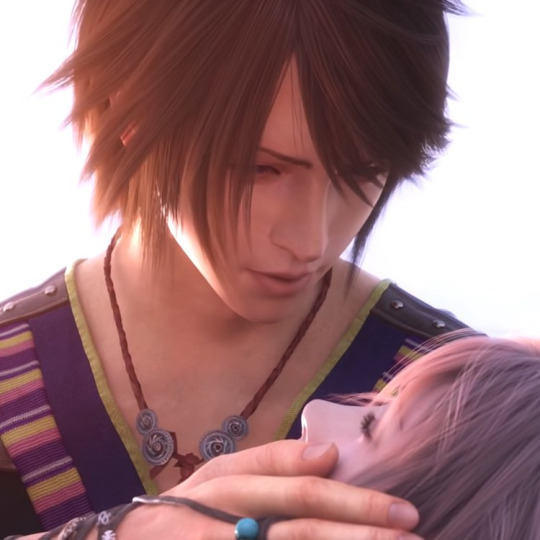
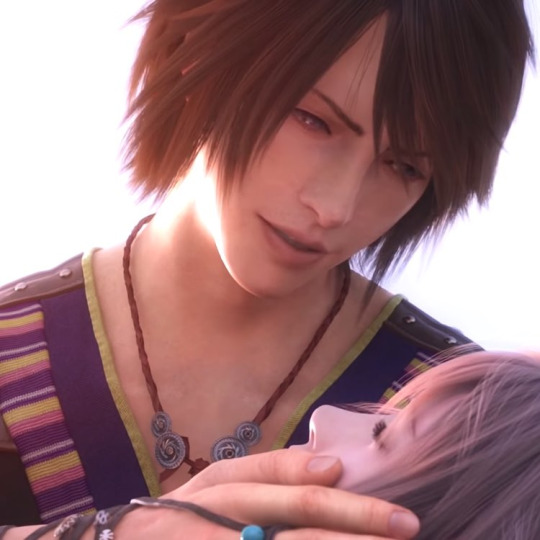
"i'm leaving her in your hands. take care of her.
if he died, would someone protect her after? when he thought of it, he felt depressed. and… what if she died before he did?
he was afraid of that, more than anything.” — noel kreiss, ffxiii-2 novels
6 notes
·
View notes
Text
The Story of Caius Ballad
Once a seeress receives her first vision, the Guardian will take her away from the tribe and leave civilization behind. From that moment on, taking care of her is his responsibility. No one will hear her prophecies but him, and no matter what she sees, neither of them will try to change history.
She’s rarely older than six when he takes her under his wing.
She’s rarely older than sixteen when he watches her die.
A retelling of Final Fantasy XIII-2 from Caius Ballad’s point of view, taken from a small essay that analyzes his role in the game and whether or not he can be considered an anti-villain. The full analysis: https://bit.ly/3LJa2Ck
The tale of the seeress is as old as humanity itself. Etro, the goddess of death, gave the first human ever created the gift of reincarnation. That gift, however, came with a ruthless side effect. The human–a girl who was always given the name Yeul–was reborn with the ability to see the future, and whenever she had a vision, her lifespan grew shorter. Because of Etro’s blessing, no incarnation of this girl ever reached adulthood.
The seeresses were protected by Guardians—warriors from the Farseer tribe, turned into l’Cie to make sure they fulfilled their duty. Since there could only be one Guardian at a time, a challenger for the role had to kill the present one to take their place. The last warrior to ever become a Guardian was Caius.
Like every Guardian before him, Caius protected the seeresses by using his powers as a l’Cie. He was the most powerful warrior in the tribe—but one day, that still wasn’t enough. The Farseers were attacked by enemies, and to protect Yeul, he chose to perform an incarnate summon—a skill that allowed him to become one with his Eidolon at the cost of his own life. Etro, touched by his selflessness and dedication, decided to bestow a blessing on him. When Caius awoke, he was no longer a l’Cie. Etro had infused her own heart into his body, providing him with unfathomable power and the gift of immortality. He would now be able to protect every incarnation of Yeul, from her first vision to her last, forever.
This marks the beginning of the story about Caius Ballad, the immortal Guardian who killed the goddess of death and broke time and fate itself in order to save one single soul.
*
Wherever there’s a Yeul, there’s always war and unrest. She’s hated, she’s feared, and there’s always people who want to abuse her and her gift. Caius can protect her from physical threats, but he can’t stop her suffering. She’s just a child, after all—a lonely child, shunned by those who should have loved her the most. To fulfill his role as a Guardian, Caius is forced to learn a skill that warriors are never taught: How to comfort a crying young girl.
The Farseer laws state that altering the future is forbidden, but there are always people who don’t follow the rules. After one of Yeul’s prophecies causes enough disorder to spark a civil war among the Farseers, a new tradition is born. Once a seeress receives her first vision, the Guardian will take her away from the tribe and leave civilization behind. From that moment on, taking care of her is his responsibility. No one will hear her prophecies but him, and no matter what she sees, neither of them will try to change history.
She’s rarely older than six when he takes her under his wing.
She’s rarely older than sixteen when he watches her die.
*
Whenever the future changes, Yeul receives a vision. The most fatal ones are caused by life-altering changes in the timeline—and more often than not, the culprit behind those changes is the goddess herself. The humans affected by her interventions call them miracles. They have no idea that the cost of those “miracles” is the life of a young girl.
*
Though the incarnations of Yeul all look the same, they all have different personalities. They’re more than just seeresses—they’re individual beings, all unique in their own way. Even as Caius’s own heart grows darker, he never stops protecting these girls—and he never stops mourning them.
Over and over, the cycle repeats itself. Even at her youngest, Yeul always knows what awaits them both at the end of their journey. She will die, and he will live.
*
As a warrior of the Farseer tribe, Caius once worshiped Etro. Never give up, because the goddess Etro watches always, and helps those who help themselves. Just like his peers, he used to think of the goddess’ gifts as blessings. Now, he sees them for what they truly are—curses. The goddess might not think of them as such, but then again, she doesn’t seem to think much at all. Being reborn over and over just to live as an outcast and die before reaching adulthood is not a blessing—and neither is immortality.
*
One day, Cocoon nearly crashes into Pulse. Etro once again decides to use her power to mindlessly change the course of history. She frees six crystalized l’Cie from their stasis, but her act of mercy creates a crack in the veil between the realms. A woman, one of the six, is dragged into Valhalla as chaos seeps into the mortal world, distorting time. Most humans barely notice the changes. Yeul keeps dying.
*
Three years after the fall of Cocoon, Caius and Yeul witness a man and a woman step through their first gate together. It was Yeul’s decision to come to the town called New Bodhum, insisting that she wanted to see the woman from her visions, Serah, in person. Caius doesn’t share her enthusiasm. Considering the number of visions Yeul has had of this woman, she’s bound to be a catalyst of changes in the timeline. Yeul is intrigued by the odd duo, though. The man looks like a Farseer warrior, but no one seems to have taught him the rules about altering history. Serah looks nothing like a woman from the tribe, but she still has the ability to see the future. Their very existence is an anomaly of its own.
By entering the Historia Crux, the two will inevitably create ripples in the timeline. Yeul holds no grudge against them. Caius does.
*
There’s a man, one of the six, who collaborates with the time travelers. He acts according to Noel and Serah’s advice, slowly adjusting the course of mankind to make sure that the “correct” timeline becomes reality. He never follows them on their journeys, though. No matter how hard he tries, the gates won’t open for him. Out of the six, he’s the only one who’s forced to make his way through time the way humans are supposed to. His life is a long, strenuous one-way street—just like Caius’.
*
Two centuries later, Caius finally catches up with the time travelers. The Yeul of this era, just like ones before her, has been plagued with visions of them. Caius has come to understand that he will one day know this man, Noel, but that doesn’t matter. They’ve caused enough death already with their careless changes of the future. Caius has a duty to protect the timeline, to protect Yeul, and they have to be punished for their crimes. It’s the law of the Farseers, and the duty of a Guardian.
The time travelers don’t go down easy, though. Noel is a skilled fighter, and Serah uses magic with the ease of a l’Cie. Monsters appear by their side, following their every command. After an unexpectedly challenging battle, Caius eventually gains the upper hand. He’s just about to give the warrior the punishment he deserves when Yeul tells him to stop. It’s too late, she says. The timeline has already changed. He sheathes his sword and kneels before her. He is her Guardian, her servant, and he follows her command. His battle with the time travelers is far from over, though. They will be punished for their sins.
*
The same Yeul, the same year, asks Caius to let her meet up with the time travelers alone. She says that she trusts them, and that she, too, wants them to find their “correct” timeline. Caius knows what will happen if she helps them, but he is her Guardian, and it’s not his place to stop her.
When he finds her in Augusta Tower, she’s already gone. This time, she was the one who changed history—and just like that, Caius lost another Yeul.
*
The nightmare continues. Every time Caius holds Yeul’s dead body in his arms, a part of him breaks. There’s not much left of him now—just boiling fury, and the knowledge that somehow, someday, he will put an end to all this. His hatred of the goddess has become a part of his very being, just like the cursed heart pounding in his chest.
*
700 years after the fall of Cocoon, Caius meets the final Yeul. The end of humanity is drawing near, and no more children will be born. He once made a promise that he would allow the last Yeul to live a normal life, and now, at the end of all things, he finally gets to see her happy. Everyone in the village knows who she is—what she is—but she still has friends. One of those friends is Noel Kreiss, the boy who will one day cause the death of countless of her earlier incarnations. The boy asks Caius to train him, and he agrees. The puzzle pieces are slowly falling into place. The full picture isn’t quite there yet, but a plan is brewing in the back of his mind. To free Yeul—all incarnations of her—the goddess would have to die. Etro’s heart beats within his chest, but his curse doesn’t allow him to destroy it himself. He already knows how powerful Noel will one day become. Maybe one day, this boy will actually be able to do the one thing Caius cannot do himself.
With Caius’s training, the boy grows into a warrior. He doesn’t understand the old ways, though—he wants the power of a Guardian, but doesn’t want to kill Caius. No matter how many times Caius tries to taunt him into it, Noel refuses to give in. He’s not strong enough. Not yet.
In the end, Caius abandons his original plan. This Noel, the one who has yet to travel space and time, doesn’t have it in him to kill. He is, however, strong enough to protect the final Yeul. On her fifteenth birthday, Caius leaves Yeul in Noel’s care, knowing that the next time he and his protégé meet, it won’t be on friendly terms.
Following the source of the power residing in his chest, he makes his way to Valhalla. It’s time for him to face the goddess himself.
*
In Valhalla, Caius finally figures everything out. He sees the timelines—every single one of them—and he knows what he has to do. He will make sure that the “correct” timeline that Serah and Noel have been chasing will never come to fruition. In a way, he already has. He engineered his own path through time to get to this exact place at this exact moment by creating the paradoxes. Cocoon will fall, and so will the new, manmade replacement, causing enough casualties to force open the gate to Valhalla. That’s when he’ll make sure Noel deals that final blow. That’s when the goddess will finally meet her end. Time and fate will cease to exist, and Yeul’s soul will finally be free. Whatever is left of him when the deed is done will look after her—every version of her—forever.
But first, he has to defeat Etro’s champion—the woman who lost her life in the mortal world when she was sucked into Valhalla, all thanks to one of Etro’s blessings.
Caius can’t wait for the goddess to die.
*
500 years after the fall of Cocoon, on the day of its final descent, Caius once again faces Noel and Serah. As expected, Noel has gained the strength and skill of a true Guardian. Caius brings them to Valhalla, the place where the finale of his plan has to take place, and their fight continues. Noel defeats him, just like Caius hoped he would, but he stops before dealing the final blow. Just like the boy from the dying village, he refuses to kill.
It doesn’t matter, though. Every piece of Caius’ intricate puzzle has already fallen into place. This is where the goddess dies. This is where his long journey finally ends.
He grabs Noel’s sword and plunges it into his chest.
This is where Yeul’s soul is set free.
#ffxiii#ffxiii-2#ff13#ff13-2#caius ballad#final fantasy xiii-2#final fantasy 13-2#fanfiction#serah farron#noel kreiss#paddra nsu yeul#I REPLAYED THE GAME AND IT DROVE ME SLIGHTLY NUTS JUST LIKE THE LAST TIME OKAY
42 notes
·
View notes
Text
frothing at the mouth still over what sqex did to Noel's character in Lightning Returns
#genuinely so mad#also i wish bc he'd ended up with serah instead of snow fhsjsks#ff13 2#lightning returns final fantasy xiii#noel kreiss
6 notes
·
View notes
Text
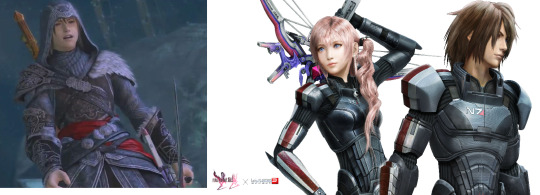
It's been over a decade but part of me still hasn't recovered from this
#ff13 2#gaming#noel as ezio slaps#noel#serah#I want more game characters to officially cosplay characters from entirely different franchises#I don't care how silly they look#underutilized business opportunity#mass effect#ac
7 notes
·
View notes
Text
i need to go back to writing songs its been so long but my brain keeps clicking some song for minette similar to unawhut's "i pray to you"
youtube
like lyric-wise and melody wise it gives me a lot of minette vibes and i kinda want to make a short song or SOMETHING similar.
#like piano YES maybe violin. idk how to play violin but i can imagine it for minette at least lol#id like to#i think like the song would be a mix between this song and then noel's theme from ff13#which...checks out when minette's color scheme is very similar to yeul in 13-2#WHICH WAS ALSO SUPER FUNNY TO SEE BECAUSE IT JUST 'ah....wow even years after i cannot leave this place lol'#snow speaks#for minette#dont mind me im probably going to forget saying this#BUT I LOVE HOW BITTERSWEET THIS SOUNDS?#its such a simple melody but you can feel the pain and i think thats how i imagine minette's final wishes to be anyways. but yknow its ok#going back to listening to dragonspien ost on loop brb#Youtube
3 notes
·
View notes
Photo
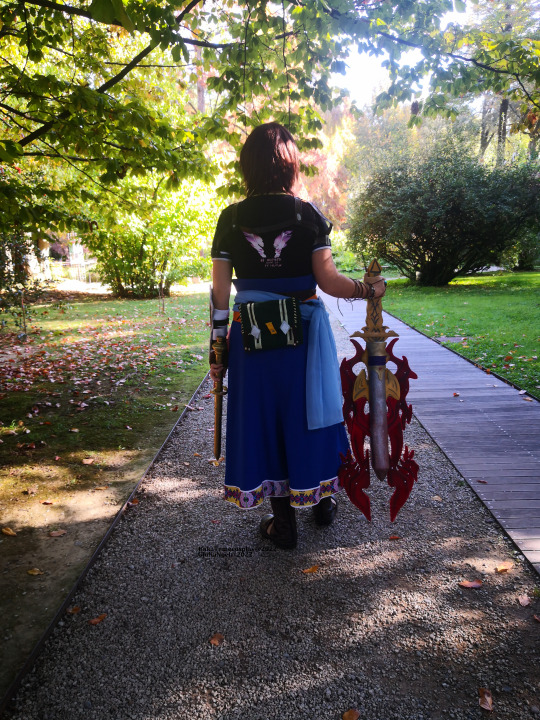
Another photo of my cosplay Noel Kreiss (Final Fantasy XIII-2)
Lucca comics 2022
if you enjoy my work leave a like,reblog this photo with credit or follow me,o if you want support me on ko-fi you are welcome! thank you so much!
ko-fi.com/giulianoel
#noel#noel kreiss#noel kreiss cosplay#cosplay#cosplayer#Final Fantasy XIII-2#final fantasy#final fantasy cosplay#ff13-2#last hunter#italiancosplayer#lucca comics 2022#sword#Shadow Hunter#BakaTeme Cosplay#giulianoelkofi
0 notes
Photo
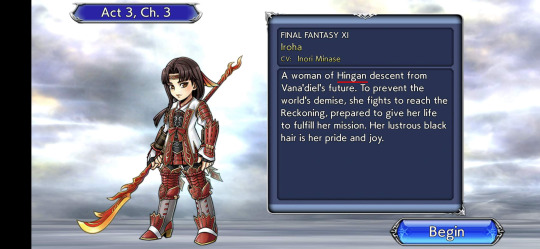
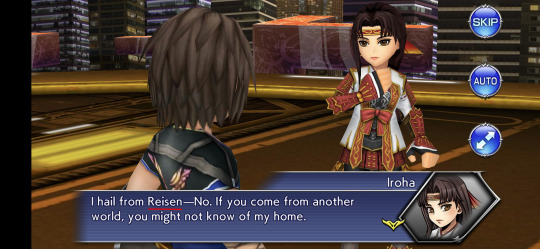
Hingashi is on the Source Etheirys, not on Vana’diel, wtf? (I never got very far in FFXI (I think I made it to the first expansion at best) but I can’t find any info on what is meant by “Hingan”)
Of course Materia sent her to Noel of all people pft.
Also if I had a dime for every time she would up trapped in another world without her memories, I’d have two dimes but considering Materia can no longer seal memories, it’s weird that it happened twice.
#Noel Kreiss#ffxi#ff11#ff13-2#ffxiii-2#final fantasy 11#final fantasy xi#final fantasy xiii-2#final fantasy 13-2
1 note
·
View note
Text
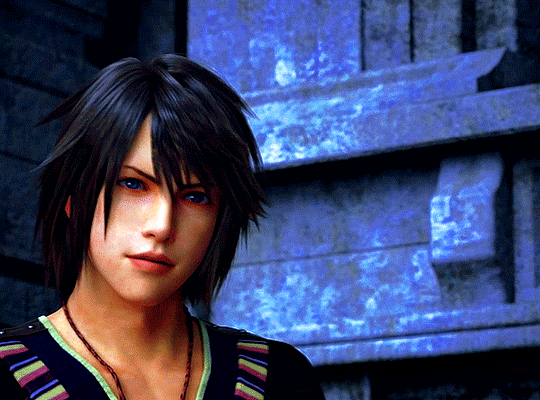
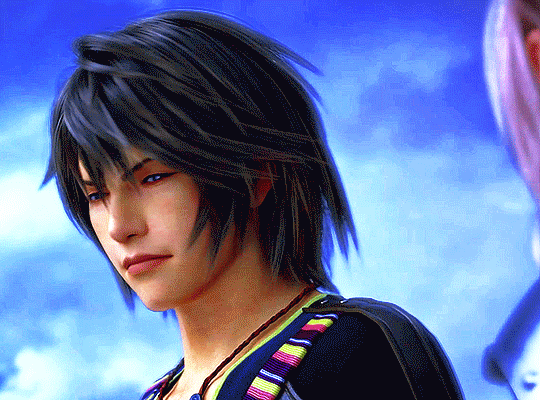
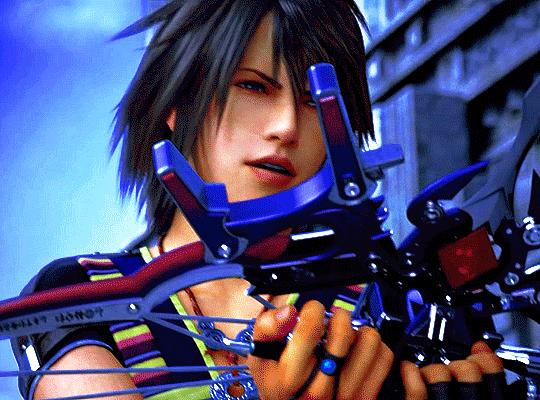
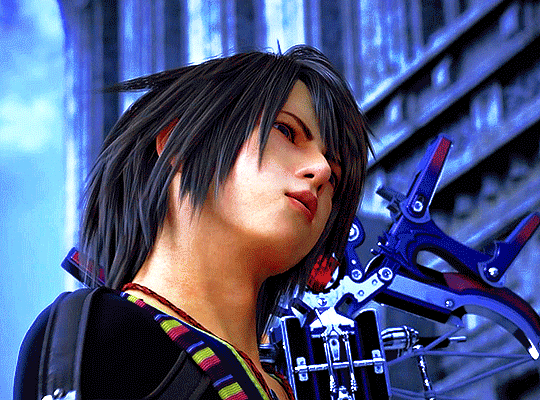
NOEL KREISS
FINAL FANTASY XIII-2 (2011)
#noel kreiss#final fantasy xiii-2#ffxiii-2#final fantasy xiii#ffxiii#final fantasy 13#ff13#final fantasy#ffedits
292 notes
·
View notes
Note
Just wanted to thank you because it's thanks to you that I've bought FF13-2 (and finished 13 a while ago) and I'm currently LOVING IT I don't understand how some people can call it the worst FF game like !!!
The game is so much fun, Iove Serah and Noel, I love the combat system and if I talk about the osts I am never shutting up ever again (also I fell in love with Caius at first sight but that's just me falling for every FF villain).
Also I love your art !! The one with Caius patting Yeul's head made me laugh a lot, I literally thought the same while watching the cutscene lmao
RIGHT??? My favorite part about xiii-2 has to be watching serah and noel interact with each other, like it gives me life
Caius is so fine btw, idk what possessed square enix to give us this half-insane deep voiced dilf with a tragic backstory but I sure am grateful bc WOW he's beautiful
And thank you!!! I need to draw more xiii-2 art istg I love this game to death
#same with the ost btw i literally listen to it every single day its FIRE#ask#anonymous#final fantasy xiii
20 notes
·
View notes
Text
FFXIII - and Lightning
I've been asked; if FXIII-Lightning Returns is your favorite *ever* Final Fantasy game; why don't you write more about it? Like your other multi-volume sagas on the other franchises you go on fanpages about?
Because most of what I would have to say about the 13 series as a whole would be critical in nature. FFXIII is the first game in the FF series that feels Rushed, Forced, and suffers from the the dreaded [hallway effect].
The hallway effect is what happens when you try to extend a Retro-Style side-scrolling game like [Ghosts and Goblins] or [Battletoads] into a 60 hour (minimum) endeavour.
And by 60 hour minimum; I mean regardless of skill level, replays, or skipping side-content you're sinking approximately 60 hours in from front to back. You can get it down to about 40 hours if you're really focused, but it is a slog.
And this is the first in the FF13 series. So it's hard to say "Wow, I love this game and you should too" when it feels more like a trap where you'd love to finish the game; but it feels less like a game and more like work.
That's not to say you shouldn't like the game. I'm hyper critical, despite thoroughly enjoying the story. Although... The [Day-time Soap Opera] feel if the game may lead other players to outright avoid it in it's entirety.
The world of FF13 is set in Gran Pulse's moon; Cocoon. And society has set up a safe haven because monsters have taken over the planet's surface. The government has created a sort of legal system that forces [Criminals] suspected of [Crimes] to face punishment or flee to the planet's surface (which is not an easy thing to do). The planet's surface is basically Australia.
So this reflects a lot of "penal colony" rhetoric from the [Colonial] days.
In between 13 and 13-2; the titular character [Final Fantasy XIII], I mean [Lightning] has gone missing. She just fell in a gap between dimensions and her friends and family have absolutely no idea where she went.
This leads to her sort of Adopted Son; Hope from the first game to set off on a frantic lifelong mission to find Lightning. Similar to the plot of Interstellar; but with more RPG elements. Hopes quest coincides with Noel's quest who, through Hopes dealings with the quantum space time [whatever's] and though the power of [Eidolons] (this installments version of the [Summon]) is forced from the future into the present world where Hope, the character, lives.
He informs Hope of the future; A world that has gone extinct. Not just Humans, the entire planet. And Noel, along with Caius who also disappeared between dimensions like Lightning did, are the last two humans on Gran Pulse. (Cocoon has since been evacuated so that humanity lives in Gran Pulse.)
Leading to an unending battle between Lightning and Caius until the events of FF13-LR.
FFXIII-2 has a more arcadey feel (despite the original game was designed to mimic an arcade experience) and IMO has the mechanics of what the original FFXIII should've had in the beginning.
I really feel that if FFXIII was originally released with a FFXIII-2's style, it would've had a bigger following. The original FFXIII, however, did something that I don't know if it was intentional; allowing freedom of movement on Gran Pulse when the player finally gets there (Gran Pulse feels like FFX's world where the calm lands are).
This makes the player think; Do I really want to go back to cocoon to finish this? Or just hang out here on Gran Pulse? At the part I arrived in this area, I wanted to do the side quests; but I was also so burned out on the game I just wanted to be done with the story. (And I didn't wanna watch a YouTube video.)
I HAVEN'T SINCE TOUCHED FFXIII or -2, despite having played LR 3 times. That's how much I enjoy LR; even now I would go back and play that and avoid xiii and -2 entirely.
Hope and crew put an immense effort into trying to contact Lightning; the only person they really feel like could save the planet from its eventually destruction; while simultaneously trying to defeat Caius and the dark Chaotic rifts that open up all over the planet; in the past, present, and future.
Serah, being a [Seer] Sees a vision of Lightning save the world at the end of XIII-2 before her ultimate death. [Seer Visions] being thought to eat a portion of the Seer's life is the documented reason why; but nobody knows for sure.
In Lighting Returns, [FFXIII]; I mean Lightning: appears as diety, working for the Christian God [Bhunivelze]. An all powerful entity who wishes to destroy Humanity, Gran Pulse, and reform it as whatever he thinks is a better version.
At first, Lightning is collecting Souls. She Operates in a similar facet to the Protagonist of Act Raiser; returning to a celestial [Home Point] in between each outing and trying to save as many people as she can; However; Bhunivelze, Hasn't told her about his true intentions, and keeps a Copy of [Hope] as she remembers him, a child from the first game. But Hope isn't really there; he's a construct controlled by Bhunivelze; an effort to control Lighting entirely.
It's at this point I stop to tell you may favorite connection between FF13 and the Lightning Saga to another lesser known game series on GameBoy: [Sa-Ga] or {Final Fantasy Legend} in the west. I'm sure there's many more references to the Romancing SaGa series as a whole, but it's the Gameboy games that I've played regularly.
The GameBoy games feature a lot of the same key story points (That I'm going to glaze over) such as time travel to save the world inside of a futuristic spaceship (Legends3), Fighting and taking the place of the divine being (Legend 1) and most notably (For me) Odin. Whom ressurects the Hero should they die, only for the main character to have to fight Him and take his place.
(The save/reload ability of the game can be interpreted as Odin's resurrection power in this case. Which is a detriment, because you can no longer be "reloaded" to right before you died.)
Odin in LR becomes Lightnings mighty Steed (Chocobo) who many players tend to rename to [d*face] prompting SquareEnix to remove the ability to rename your Chocobo in the PC ports.
While Lightning becomes Odin in this game, and has to make this decision; follow God's Will, OR; save the souls of humanity and ferry them to the new world like a modern Charron retelling.
Obviously; Lightning chooses to mimic Noah and save humanity (Possible after canonically failing her mission of 13 days in length several times. Due to needing to 100% the game basically in order to see the true ending.) and ferry's the souls of the damned to the new world; while Serah and Caius opt to stay in the [divine realm] in order to protect humanity from another would be Bhunivelze.
5 notes
·
View notes
Note
3, 4 and 5 with ff13 Panchi!
3. How do the other characters generally feel about your self insert?
There's so many characters that I can dive into but generally Panchi gets along well with the main cast! One of their closest friends is Noel! Noel thinks pretty highly of them and really respects their intelligence and fighting skills...And then they lose some of the respect when Noel meets Snow- /hj
They also get along very well with Serah and Lightning of course bc siblings! Panchi is pretty protective of Serah and Lightning is protective of both of them-afjsbfjdn The three of them care about each other a lot, they're the only family they have.
4. Would you be considered a main character, side character, villain, or something else?
Panchi is the main character of 13-2 so main character definitely! They're also very important in the first game and they're a Player 2 of sorts in LR!
5. Does your self insert have any special powers or abilities?
Hmmm... Before the game began? Not really. They were just a normal civilian. After the first game though, they know how to use magic! And in the second game, Panchi has the Eyes of Etro which gives them visions Which ends up being the cause of them dying- oops!
#pan got an ask#merlin tag🦉#SORRY FOR TAKING SO LONG#Tumblr finally fixed that issue of being unable to edit asks so I was finally able to answer ;v;#Thank you so much for the ask Merlin!! <3#Hope you have a good day smooching Caius!#s/i: ff13
2 notes
·
View notes
Text
Okay FF13 let me allocate all my XP, I'm normal about the game again.
Fun fact, there are only four mainline Final Fantasy games that aren't available on Switch. FF1-6 are available as Pixel Remasters, and the PS1 trilogy remasters - with 7 and 9 both releasing years before FF8 allegedly due to lost source code - are there as well.
The Final Fantasy X remaster is on there with its own sequel, Final Fantasy 12 got an updated remaster that got ported down to the Switch and Final Fantasy 15 got a phone game-ass looking demaster that lets you play the entire game on the Switch.
The four games that aren't on the Switch are FF11, which is an MMO; FF14, which is also an MMO; FF16, which is a triple-A game release from 2023 that's exclusively on the PS5 for the time being... and Final Fantasy 13.
My relationship with the game is clearly tumultuous - I like the characters and I defend them based on the strength of their arcs, I think it's a gorgeous game (it still looks great even in 2023) and I don't feel cheated by it because I bought it for ten bucks in like 2015. The combat is fun, and now I'm a more experienced RPG player I can actually work with what the game is giving me. I didn't really get into using buffs and debuffs until I played Shin Megami Tensei: Nocturne for the first time; pretty much every time I hit a roadblock in FF13, I googled during my first playthrough. Nowadays, I'm handling everything pretty handily.
On the downside - I just can't square up the decision to lock your levelling progress behind story chapters, then thin out enemy resistance so that you get drip-fed the exact amount of XP you need between bosses, and then cap it off by making it a janky endeavour to even attempt grinding in the first place - which might end up biting players in the ass the one part of the game that they might *need* to grind. I appreciate this game, even if I think the foundation of the gameplay is abjectly broken.
And yet, I would still like to see FF13 (and its sequels) release on the Switch. Every other mainline game - except for two MMORPGs and a butt-spankingly new installment in the mainline series - is on there. Warts and all, adding FF13 would complete the set from FF1 to FF15.
And honestly, I'd encourage an RPG enthusiast to play through the game. It's flawed, but there's a lot to process and a lot to potentially appreciate beyond the most sour notes of the criticism.
If I were feeling cynical, I could say that experiencing the bad makes you appreciate the good. You could apply that externally to the entire Final Fantasy franchise, implying that this is the Worst Final Fantasy Game Ever, or you could apply it internally where great visuals, stylish combat and a surprising amount of gameplay depth meet with bafflingly restrictive game design from traversal to core gameplay systems and a rich, detailed narrative that's mostly confined to the optional datalog.
Either way, Final Fantasy 13 is a fascinating game. I have very mixed feelings on it. I think what this game does right - the strong, interwoven character writing, the graphics and the ending of the game - is done worse by its direct sequel, 13-2 - I remember the story regarding Noel being simple and sappy compared to everyone's mess in the first game, the framerate and moment-to-moment graphics are noticeably rougher than the first game, and the game has to retcon itself into existence with a literal deus ex machina.
But by that same token, all the gripes I have with 13 - a levelling system that lets you acquire XP while capping how much of it you can spend, and gameplay environments which are linear to the point of dullness - are absolutely blown away by FF13-2. It's such a fun game. One reason I'm even playing FF13 is because I wanna play the two sequels, including the third game I never got to play. But even then, I just think people should experience what the hell this game is, for better or for worse.
#final fantasy 13#long post#lightningposting#apologies for neglecting that last tag. i forgot about it while I was playing kingdom hearts
2 notes
·
View notes
Text
I used to really love ff13-2 and there are still things I really like about it, however when I replayed it recently I just remembered, oh yes, there is That Thing about it that even on my first playthrough that tarnished it for me
idk if it was rushed for whatever reason but it's among that handful of games from the era which had all this incredible build up for the first 80-95% of the runtime then just fizzled out at the end. it feels like it should have been a little longer if that makes sense lmao. I love everything up until you find out noel's backstory then the game just kinda ends and it's incredibly disappointing. which is a shame because up until that point the pacing is actually pretty good, the characters are fun (ilu Alyssa and Caius), the bonus content is great. the main story is good but the pacing of the last 10% of it kills a lot of the goodwill I have towards the rest lmao
ngl I also miss when jrpgs (may they rip in peace) had interesting side characters, like half the fun of FF7's and 8's fan spaces were the content surrounding characters like the turks or fujin and raijin... I cannot believe how massive 7's cast is and how many of the side characters not only get their turns in the spotlight but are also just very significant to the game in their own ways. the shinra execs all get their own boss fights lmao. modern ff could never :v
lol and rambling about all of this just makes me want to replay skies of arcadia and baten kaitos origins
#i admit the goofier something is the more I like it#that's why I like wind waker and twilight princess so much lmao#on the other hand there are games that are too caught up in trying to be goofy that they just fail#give me organic homegrown goofiness with no tryhard stuff and we gucci#mog toss = organic goofiness. the nu metal chocobo song = organic goofiness. chocolina = organic goofiness#it is all presented with no commentary and the game doesn't linger on any of it lmao#older jrpgs did this pretty well lmao things would just show up out of nowhere. no context. but here they are lmao#I would say lightning returns does this fairly well too and things like lightning and “hope”'s chemistry cement the deal#another good example of what I mean is majora's mask lmao#or animal crossing
4 notes
·
View notes